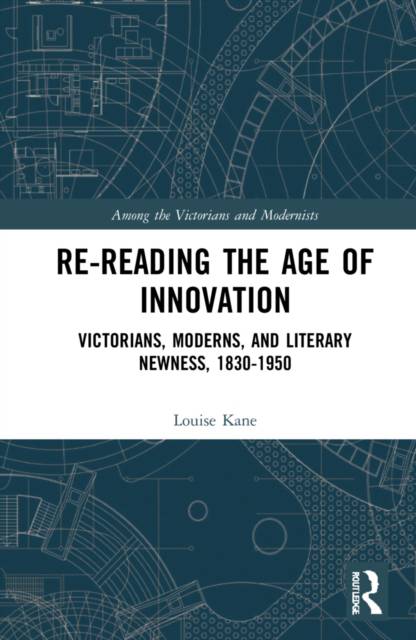
- Afhalen na 1 uur in een winkel met voorraad
- Gratis thuislevering in België vanaf € 30
- Ruim aanbod met 7 miljoen producten
- Afhalen na 1 uur in een winkel met voorraad
- Gratis thuislevering in België vanaf € 30
- Ruim aanbod met 7 miljoen producten
Re-Reading the Age of Innovation
Victorians, Moderns, and Literary Newness, 1830-1950
Omschrijving
The period of 1830-1950 was an age of unprecedented innovation. From new inventions and scientific discoveries to reconsiderations of religion, gender, and the human mind, the innovations of this era are recorded in a wide range of literary texts. Rather than separating these texts into Victorian or modernist camps, this collection argues for a new framework that reveals how the concept of innovation generated forms of literary newness that drew novelists, poets, and other creative figures working across this period into dialogic networks of experiment. The 14 chapters in this volume explore how inventions like the rotary print press or hot air balloon and emergent debates about science, trade, and colonialism evolved new forms and genres. Through their examinations of a wide range of texts and writers--from well-known novelists like Conrad, Dickens, Hardy, and Woolf, to less canonical figures like Charlotte Mew, Elías Mar, and Walter Frances White--the chapters in this collection re-read these texts as part of an age of innovation characterized not by division and divide, but by collaboration and community.
Specificaties
Betrokkenen
- Uitgeverij:
Inhoud
- Aantal bladzijden:
- 244
- Taal:
- Engels
- Reeks:
Eigenschappen
- Productcode (EAN):
- 9781032043593
- Verschijningsdatum:
- 28/07/2022
- Uitvoering:
- Hardcover
- Formaat:
- Genaaid
- Afmetingen:
- 152 mm x 229 mm
- Gewicht:
- 512 g

Alleen bij Standaard Boekhandel
Beoordelingen
We publiceren alleen reviews die voldoen aan de voorwaarden voor reviews. Bekijk onze voorwaarden voor reviews.








